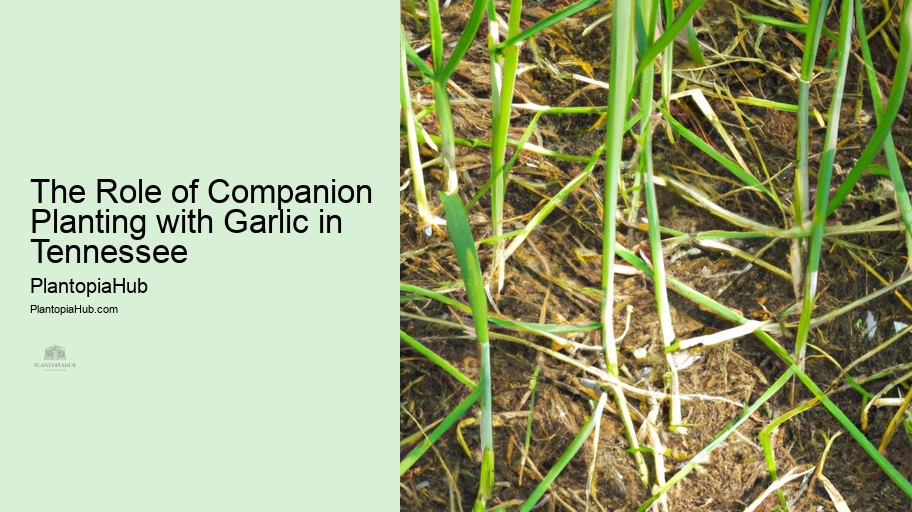

Garlic's success begins with the soil it's planted in. In Tennessee, preparing your soil correctly is essential for healthy garlic growth. Start by selecting a well-draining site with full sun exposure. Loamy, well-aerated soil is ideal for garlic cultivation.
Begin soil preparation in late summer or early fall. First, remove any weeds and debris from the planting area. Next, enrich the soil with organic matter like compost or well-rotted manure. Garlic thrives in slightly acidic soil with a pH between 6.0 and 7.0. Conduct a soil test to ensure the pH is within this range.
In conclusion, soil preparation is a critical factor in successful garlic farming in Tennessee. Investing time and effort in this stage will pay off with healthy plants and bountiful harvests.
Proper garlic planting depth and spacing are key factors in achieving a successful harvest in Tennessee. When planting garlic, ensure that each clove is planted at a depth of 2-3 inches below the soil surface. Planting too shallow can expose cloves to freezing temperatures, while planting too deep may hinder growth.
Adequate spacing is equally important. Space individual garlic cloves approximately 4-6 inches apart within rows, leaving 12-18 inches between rows. This spacing allows for optimal air circulation, reduces the risk of disease, and ensures each bulb has enough room to grow.
In conclusion, paying attention to garlic planting depth and spacing in Tennessee soil is vital for a successful crop. Properly spaced and planted garlic cloves will result in healthy, vigorous plants and higher yields.
Effective watering strategies are crucial for garlic cultivation in Tennessee's variable climate. During the fall and winter, when garlic establishes roots, monitor soil moisture levels and provide supplemental irrigation if the soil becomes excessively dry. Aim to keep the soil consistently moist but not waterlogged.
In the spring, as garlic begins active growth, adjust your watering routine. Reduce the frequency of watering but increase the volume to encourage bulb development. Maintain soil moisture to prevent stress on the garlic plants.
To sum up, tailoring your watering strategy to the specific season is essential for successful garlic farming in Tennessee. Adequate moisture management will result in robust, healthy garlic bulbs at harvest time.
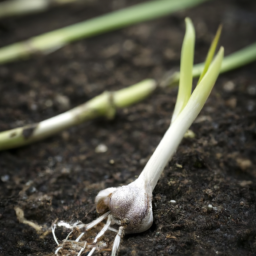
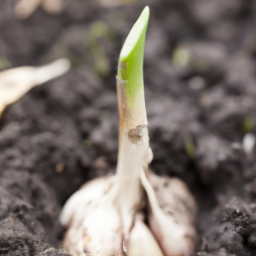
Fertilization is a critical aspect of garlic cultivation in Tennessee.
Additionally, consider using organic amendments like compost or well-rotted manure to improve soil fertility. Organic matter enhances soil structure and nutrient retention, contributing to healthy garlic growth throughout the growing season.
In conclusion, meeting the fertilization needs of your garlic crop is essential for achieving robust yields in Tennessee. Properly nourished plants are more resistant to pests and diseases, ensuring a successful harvest.
Protecting your garlic crop from pests is crucial for a successful harvest in Tennessee.
If pest infestations occur, organic solutions such as neem oil or insecticidal soap can help. Regularly inspect your garlic plants for signs of pest damage and take immediate action to prevent further harm.
In conclusion, implementing pest control solutions is essential for maintaining healthy garlic crops in Tennessee. A proactive approach to pest management will safeguard your harvest and promote strong, vigorous plants.
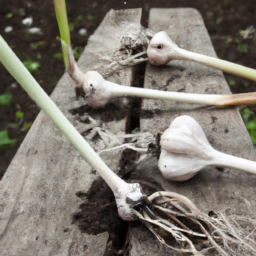
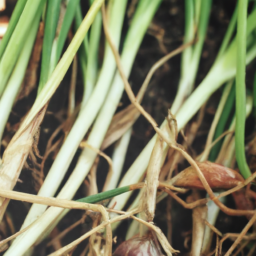
Organic farming practices are gaining popularity in Tennessee, and they can be particularly beneficial for garlic cultivation. Start by selecting organic garlic varieties and using organic soil amendments like compost and aged manure. Avoid synthetic pesticides and fertilizers, opting for natural alternatives.
Employ crop rotation to prevent soil depletion and reduce the risk of disease. Implement mulching to conserve moisture and suppress weeds without the use of chemicals. These practices not only protect the environment but also produce healthier garlic bulbs.
In conclusion, embracing organic farming practices for garlic in Tennessee aligns with sustainable and environmentally friendly principles. Organic garlic is in demand, and adhering to these practices can result in a premium product and satisfied customers.
Companion planting is an effective strategy to improve garlic growth in Tennessee. Consider planting garlic alongside companion plants like basil, chamomile, or chamomile. These companions help deter pests and enhance the flavor of garlic bulbs.
Another excellent choice is planting garlic near strawberries, which can benefit from the natural pest-repelling properties of garlic. Companion planting not only boosts garlic health but also maximizes space utilization in your garden.
To sum up, exploring companion plants is a smart strategy for enhancing garlic growth in Tennessee. Water Conservation Techniques It's a natural and eco-friendly way to protect your crop and improve overall garden productivity.
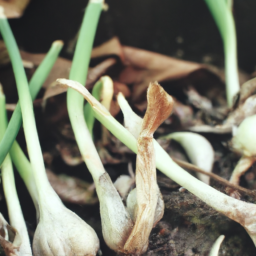
Crop insurance is essential for garlic farmers in Tennessee because it provides financial protection against unforeseen events that can impact crop yields, such as adverse weather conditions or crop failures. By investing in crop insurance, garlic farmers can secure their income and minimize potential losses, ensuring financial stability and peace of mind during challenging seasons.
Creating a customized garlic planting calendar for your Tennessee location involves considering factors like frost dates, local climate variations, and the garlic varieties you plan to grow. Start by determining the average date of the first fall frost and work backward to establish planting dates. It's important to align your calendar with your specific microclimate and garlic variety requirements, ensuring the best timing for planting and harvesting.
To protect your garlic crop from winter frost in Tennessee, consider applying a thick layer of mulch, such as straw or leaves, around your garlic plants in late fall. This mulch acts as insulation, preventing the soil from freezing and safeguarding the garlic bulbs. In extremely cold regions, you can also use row covers or cloches to provide additional frost protection. Be sure to maintain proper airflow to avoid condensation, which can lead to mold and rot.